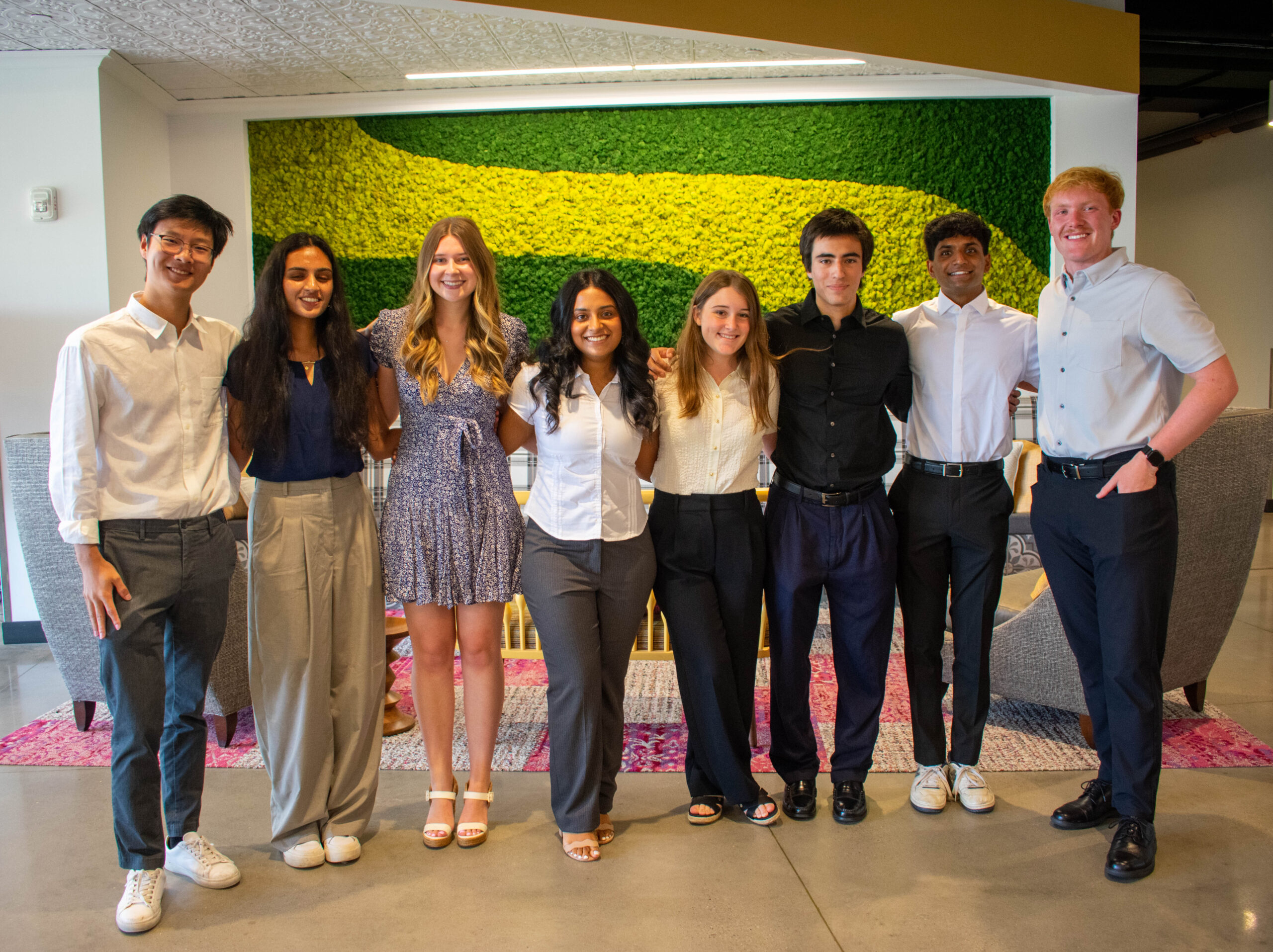Last week marked the culmination of our 9-week Summer Student Research Program (SSRP) with our annual Poster Presentation Day.
Throughout the summer, these undergraduate students were immersed in hands-on lab work, mentorship, and weekly seminars led by BMRC Core Scientists, all designed to build skills in research methods and scientific communication.
On presentation day, students showcased their hard work to a full audience of mentors, BMRC lab members, and special guests including the Bethel Family.
We’re incredibly proud of all the students and wish them continued success in the upcoming school year. And we’re excited to share that a few of them will be continuing their work right here in the BMRC labs!

Name: Olivia Bartholomew
Current year in school: Rising Senior
Major: Bioengineering
What is one skill you’ve learned this summer in the SSRP that was most valuable to you?
One of the most valuable skills I learned this summer was project planning. I gained a much deeper understanding of how much time and effort goes into designing experiments, not only to achieve the best possible outcomes but also to be logical and realistic with resources. I learned to plan experiments in a way that avoids wasting materials or money while still maximizing the quality of the data collected. This skill has already made me more intentional and strategic in how I approach research.
How has your experience in the SSRP influenced your future academic or career plans?
My experience in the SSRP has solidified my passion for research. I discovered that I really enjoy the process of investigating questions in the lab, analyzing data, and thinking critically about results. This experience has inspired me to pursue research long term and work toward earning a PhD after I complete my undergraduate degree. I also gained independence and confidence in my scientific thinking, along with practical skills in writing and data analysis that will be valuable in graduate school and beyond.
What did you enjoy most about your time here at the BMRC/Pitt?
I most enjoyed gaining independence in the lab and having the chance to develop my own scientific thinking. Being trusted to plan and carry out experiments with the guidance of my graduate mentor, Meagan, made me feel like an active contributor to the research, and I learned how to troubleshoot and make logical decisions along the way with her help. I also appreciated the opportunity to strengthen skills such as scientific writing and data analysis, which helped me better understand and communicate the results of my work. Overall, the experience gave me confidence in my abilities as a researcher and made my time at the BMRC both challenging and rewarding.

Name: Liam Klingensmith
Current year in school: Rising Junior
Major: Biochemistry
What is one skill you’ve learned this summer in the SSRP that was most valuable to you?
This experience taught me how to get information proactively, problem-solve independently, and become more confident in my abilities to critically think and work more independently in the lab. Rather than first going and asking questions, I have learned to figure out as much as I can on my own then ask for help when necessary.
How has your experience in the SSRP influenced your future academic or career plans?
Throughout this experience, I’ve developed a deeper interest int the field of medicine as a whole. Having the opportunity to interact with medical and graduate student sin the lab gave me a better insight into their paths and perspective. I am even more excited to continue to learn and explore the field of medicine.
What did you enjoy most about your time here at the BMRC/Pitt?
I appreciated having so many undergraduates in the Ferguson lab this summer. It created a collaborative and engaging environment where I could connect with my peers and learn from their experiences. I think it is extremely valuable to have these types of connections, especially when you are doing something new. I am grateful to have had that this summer in the BMRC.

Name: Abhi Nadendla
Current year in school: Rising Senior
Major: Molecular Biology
What is one skill you’ve learned this summer in the SSRP that was most valuable to you?
One of the most valuable skills I developed this summer through the SSRP was learning how to communicate my research findings. To do this effectively, I realized I had to step outside of my own understanding and view the project through the lens of someone new to the field. This meant identifying what context was essential, avoiding jargon, and reshaping the way I framed conclusions so they resonated beyond just the data. Doing so not only helped me become a better presenter, but also gain a better understanding of my work and how it fits into the bigger picture.
How has your experience in the SSRP influenced your future academic or career plans?
My experience in the SSRP motivated me to continue engaging with research and the musculoskeletal field. I found the hands-on nature of the work especially fulfilling, from culturing cells to troubleshooting experiments, and it made me even more excited about contributing to discoveries that may one day help improve patient care.
What did you enjoy most about your time here at the BMRC/Pitt?
One aspect of the BMRC that I enjoyed the most was the strong sense of mentorship and collaboration. Whether it was fellow undergraduates or senior faculty, everyone helped foster a supportive environment by offering guidance, sharing resources, or taking the time to answer questions and talk through ideas.

Name: Dhrupad Ponnamaneni
Current year in school: Rising Sophomore
Major: Public Health
What is one skill you’ve learned this summer in the SSRP that was most valuable to you?
One of the most valuable skills I’ve gained this summer is learning how to be persistent in the face of failure. Before I could even collect any usable data, I ran into what felt like a simple but frustrating roadblock, getting bacteria to properly adhere to the 96-well plate for biofilm growth. I tried the same protocol over and over, only to get inconsistent or unusable results. But rather than quitting or just accepting that it “wasn’t working,” I took a step back, started reading more literature, asked questions, and eventually discovered a different coating technique using fibrinogen that finally worked. That process of failing, reassessing, digging deeper, and trying again is something I now genuinely value. Research gave me the space to make mistakes and grow from them, and that’s not something you often get in a classroom setting.
How has your experience in the SSRP influenced your future academic or career plans?
This summer taught me more than just lab techniques—it changed the way I approach problems. At the start of the program, I found myself getting frustrated when experiments didn’t go as planned. I was hesitant to deviate from my initial plan and closed off to alternative approaches. But as I encountered repeated obstacles, I began to open up to new ways of thinking and problem-solving. I started seeing setbacks not as failures, but as redirections. That shift in mindset, being willing to explore different avenues when things go wrong, is something I know will stick with me in my academic journey and future career in medicine. Whether I’m navigating a challenging course or working with patients in complex situations, I plan to take that same persistent and flexible approach forward.
What did you enjoy most about your time here at the BMRC/Pitt?
What I enjoyed most was the environment. I got to be around people who were just as curious and driven as I was, and I really appreciated the balance between independence and support in the lab. My mentors gave me the space to take ownership of my work, but they were also there to guide me when I needed it. I also loved the opportunity to connect with other students in the program.

Name: Santiago D. Caceres Dioverti
Current year in school: Rising Junior
Major: Philosophy
What is one skill you’ve learned this summer in the SSRP that was most valuable to you?
I learned what it takes to effectively present scientific research, which I believe is an important skill that I will use in all my future pursuits.
How has your experience in the SSRP influenced your future academic or career plans?
This experience has shown me that scientific research is something I can contribute to and has motivated me to continue pursuing it, especially with relation to bacteriophages, which I find very exciting.
What did you enjoy most about your time here at the BMRC/Pitt?
I enjoyed the relative autonomy I was granted; the opportunity to read the literature and devise a plan then implement that plan and see the results was very rewarding.

Name: Anvi Tatkar
Current Year in School: Rising Junior
Major: Molecular Biology and Studio Arts
What is one skill you’ve learned this summer in the SSRP that was most valuable to you?
This summer taught me the value of experimental adaptability. It’s not just about refining a protocol when something didn’t go as planned, but in rethinking what progress looks like in research. While optimizing the growth inhibition assay for a small colony variant strain, I learned how to let data guide decisions, how to problem-solve without a predefined answer, and how to stay grounded when the path forward was unclear.
How has your experience in the SSRP influenced your future academic or career plans?
Coming into SSRP, I saw research and medicine as somewhat parallel tracks. But this summer blurred that line in the best way. Witnessing the translational potential of our work, how something done at the bench could meaningfully impact treatment strategies, made me think more seriously about becoming a physician-scientist. The MD/PhD path now feels like a natural extension of what excites me most: using science not only to understand but to heal.
What did you enjoy most about your time here at the BMRC/Pitt?
What stood out most to me was the sense of purpose that came with the work. Being part of a research environment where every experiment—mine or someone else’s—was building toward something larger felt incredibly motivating. Throughout the experience, I formed meaningful relationships that reached beyond our shared work and left a lasting impact.



